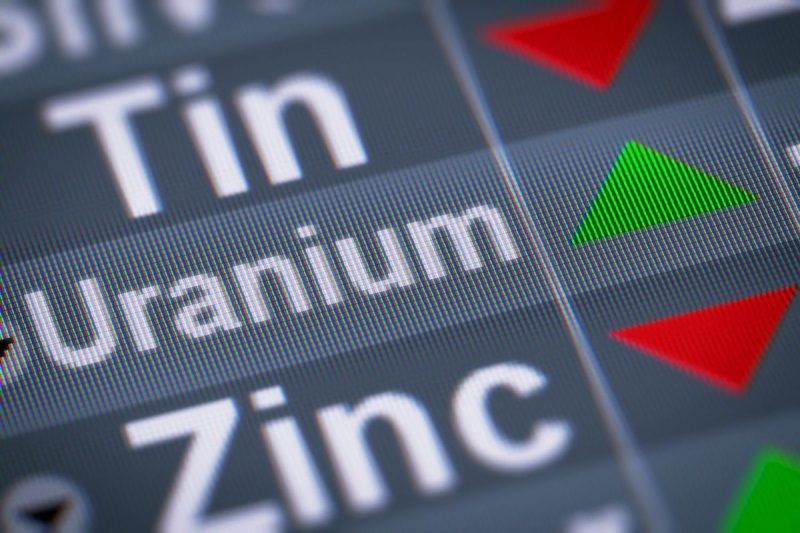Kazakhstan’s announcement of a significant increase in the Mineral Extraction Tax (MET) for uranium sent uranium stocks trending higher on July 10 as concerns of a potential supply disruption grew due to Kazakhstan’s position as the world’s largest uranium-producing country.
The new tax rate changes will come in two waves. The first, effective January 1, 2025, will impose an initial hike from the current 6 percent to 9 percent.
Starting in 2026, they will take on a more complex and differentiated rate structure, structured to vary based on production volumes and the price of natural uranium concentrate (U3O8).
For production volumes up to 500 metric tons, the rate will be 4 percent, increasing incrementally to a maximum of 18 percent for volumes exceeding 4,000 metric tons.
Additionally, if the price of U3O8 exceeds certain thresholds, an additional rate increase will apply, starting at 0.5 percent for prices above US$70 per pound and rising to a maximum of 2.5 percent for prices above US$110 per pound.
The country’s national uranium company Kazatomprom (LSE:KAP,OTC Pink:NATKY) is directly impacted by this tax change. Kazatomprom is a key player in the global uranium market, accounting for approximately 20 percent of global primary uranium production in 2023. The company has already faced challenges this year, including securing sulfuric acid necessary for production.
The company’s recent financial results highlight its strong market performance. In 2023, the company reported consolidated revenue of 1,434,635 million Kazakhstani tenge, or US$3.19 billion, a 43 percent increase from 2022. Despite a 2 percent decline in U3O8 production, sales volume rose by 10 percent, driven by increased buyer demand.
The company acknowledged the impending tax changes in a press release.
Meanwhile, Kazakhstan’s government stated the tax increase as part of broader economic reforms aimed at balancing the budget and redistributing wealth more equitably.
‘Our minerals extraction tax rates are among the lowest in the world,’ Economy Minister Alibek Kuantyrov told Reuters. ‘I think we can carefully raise it by 10-20 percent.’
These changes come amid increased government spending in response to global economic pressures and the ongoing conflict in Ukraine.
Securities Disclosure: I, Giann Liguid, hold no direct investment interest in any company mentioned in this article.

